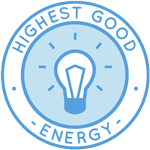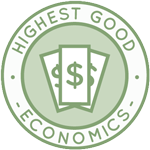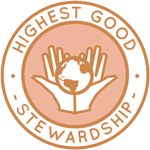Global Regeneration – One Community Weekly Progress Update #371
Global regeneration has never been needed more. One Community is creating open source plans to build teacher/demonstration hubs that will share and teach people how to accomplish it. These plans include sustainable and DIY-replicable approaches to food, energy, housing, education, for-profit and non-profit economic design, social architecture, fulfilled living, global stewardship practices, and more. When combined, they will demonstrate an example of what we call living and creating for “The Highest Good of All.”
- Here’s our project overview
- Here’s our world-change methodology
- Here’s how this becomes self-replicating
- Here’s how we are open source and free-sharing all the do-it-yourself designs

OUR MAIN OPEN SOURCE HUBS
Click on each icon to be taken to the corresponding Highest Good hub page.
One Community’s physical location will forward this movement as the first of many self-replicating teacher/demonstration communities, villages, and cities to be built around the world. This is the May 3rd, 2020 edition (#371) of our weekly progress update detailing our team’s development and accomplishments:
Global Regeneration
One Community Progress Update #371
DONATE | COLLABORATE | HELP WITH LARGE-SCALE FUNDING
CLICK HERE IF YOU’D LIKE TO RECEIVE AN EMAIL EACH WEEK WHEN WE RELEASE A NEW UPDATE
YOU CAN ALSO JOIN US THROUGH SOCIAL MEDIA
ONE COMMUNITY WEEKLY UPDATE DETAILS
HIGHEST GOOD HOUSING PROGRESS
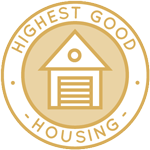 One Community is facilitating global regeneration through Highest Good housing that is artistic and beautiful, more affordable, more space efficient, lasts longer, DIY buildable, and constructed with healthy and sustainable materials:
One Community is facilitating global regeneration through Highest Good housing that is artistic and beautiful, more affordable, more space efficient, lasts longer, DIY buildable, and constructed with healthy and sustainable materials:
- Learn about:
- Global Regeneration-Our Upcoming Crowdfunding Campaign
- Learn about the different village models: 7 Sustainable Village Models
- Visit the open source portals for the first two: Earthbag Village OS Hub | Straw Bale Village OS Hub
This week Ziqian Zheng (Architectural Designer and Drafter) continued working on the Earthbag Village walkthrough and completed his 25th week as a volunteer designer with our team. This week’s focus was fixing a glitch where a person vanished and another suddenly appeared, adding more trees, shrubs, and other greenery throughout the village, removing a TV so we can show one room without it, and adding and removing various objects on the shelves within the domes. The Earthbag Village is the first of 7 to be built as the housing component of One Community’s open source model for global regeneration. You can see some screenshots of this below.
Oluyomi “Yomi” Sanyaolu (Technical Writer and Researcher) completed his 22nd week with the team and continued research for the Best Small and Large-scale Recycling, Reuse, and Repurposing Options tutorials. This week, Oluyomi cleaned up the 4 material processing tutorials formatting and made sure the references were all listed in order.
He also conducted further research to determine the best practices for One Community’s plan to tackle recycling of each of these materials. Lastly, Oluyomi completed a table comparing roadway material options for the Sustainable Roadways, Walkways, and Landscaping page. The Earthbag Village is the first of 7 to be built as the housing component of One Community’s open source model for global regeneration. See pictures below

Continued Research for the Best Recycling, Reuse, and Repurposing Options Tutorials ” Click for Page
Angela Mao (Sustainability Researcher) also joined the team and completed her 1st week as a member of the team. This week Angela began the contribution by researching Clothing Recycling/Repurposing Options. First, she researched brands that use recycled textiles and/or incorporated sustainable practices. Then she began exploring options for individual consumers. These included donating to thrift stores and various options offered by large municipalities that recycle clothing. The Earthbag Village is the first of 7 to be built as the housing component of One Community’s open source model for global regeneration. See below for pictures.
DUPLICABLE CITY CENTER PROGRESS
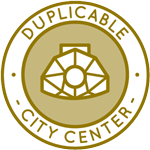 One Community is facilitating global regeneration through a Duplicable and Sustainable City Center that is LEED Platinum certified/Sustainable, can feed 200 people at a time, provide laundry for over 300 people, is beautiful, spacious, and saves resources, money, and space:
One Community is facilitating global regeneration through a Duplicable and Sustainable City Center that is LEED Platinum certified/Sustainable, can feed 200 people at a time, provide laundry for over 300 people, is beautiful, spacious, and saves resources, money, and space:
- Learn about this building and it’s function:
- Global Regeneration-Duplicable City Center Open Source Hub
This week the core team continued updating the Duplicable City Center 3D model to match the updated floor plans and interior design details. This week we focused on elements within the Social Dome.
This included updating the floor design by adding the N-E-S-W, designed the four-panel glass door, updated the dome opening for the four-panels door, updated the railing to a bamboo texture, updated pool border to match the stone planters, designed the wall bench between the two doors, designed the entry door dirt catchment track, and created and placed four sofas and 5 sets of 2 chairs and tables. The City Center will be built along with the first of the 7 villages as part of One Community’s open source model for global regeneration. Pictures of all of this are below.

Continued Updating the City Center 3D Model to Match the Updated Floor Plans and Interior Design Details – Click for Page
Alvaro Hernandez (Open Source Tech Consultant, Developer) also completed his 6th week as a member of the volunteer team. This week Alvaro continued with development of the Sustainable Roadways, Walkways, and Landscaping page. He revised the page layout, proposed improvements to the collaboration process, and continued updating the content and logging the related time measurements. Related to this, Alvaro also got his Highest Good Network software local development environment running.
This is the time and materials tracking software we’re developing and he suggested minor changes to the setup guide and began dashboard unit tests. The City Center will be built along with the first of the 7 villages as part of One Community’s open source model for global regeneration. You can see a combination of these two areas of work below.

Continued With Development of the Sustainable Roadways, Walkways, and Landscaping Page ” Click to Visit
Radhieka Nagpal (Volunteer Researcher) also completed her 8th week researching the Most Sustainable Building Materials: Carpet, Flooring, Wood, Etc. This week Radhieka started benchmarking the types of flooring to better assign ranks to them. She researched the manufacturing process and installation processes to evaluate the carbon footprint for each and also added important updates to the descriptions. She did this for Cork, Linoleum, Bamboo, Tile, Concrete, and Carpet. She slightly updated the introduction as well. The City Center will be built along with the first of the 7 villages as part of One Community’s open source model for global regeneration. You can see some of this work-in-progress below.
HIGHEST GOOD FOOD PROGRESS
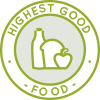 One Community is facilitating global regeneration through Highest Good food that is more diverse, more nutritious, locally grown and sustainable, and part of our open source botanical garden model to support and share bio-diversity:
One Community is facilitating global regeneration through Highest Good food that is more diverse, more nutritious, locally grown and sustainable, and part of our open source botanical garden model to support and share bio-diversity:
- Learn about the structures: Hoop House Hub | Aquapini & Walipini Open Source Hub
- See what we’ll be growing: Gardens & Hoop Houses | Large-scale Structures | Food Forest | TA
This week the core team finished researching on if we need to be concerned about CO2 levels in the Aquapini/Walipini structures. What we found was some truly fascinating research about how excessive CO2 affects nutritional value of plants, which has been known and suspected within the plant research community for sometime. Highest Good Food is an important part of global regeneration with One Community’s open source plans. A more detailed summary can now be found in the FAQ sections of the Aquapini and Walipini page and the Highest Good food page.

Finished Researching Possible Concern About Co2 Levels in the Aquapini/walipini Structures – Click for Page
The core team also continued developing the open source permaculture design content. This week the Phased Rollout Table was completed. Text was also completed for the Stewardship Infrastructure within Step 2 of the Permaculture Design Case Study. Highest Good Food is an important part of global regeneration with One Community’s open source plans. You can see some of this behind-the-scenes work below.
Mohammad Almuzaial (Civil and Construction Engineer) continued with his 23rd week helping with the Aquapini/Walipini engineering details. This week he finished the small structure’s roof and exterior shell structural members by choosing 10X49 Wide Flange main beams, 10X49 Wide Flange columns, 5X3X3/16 Hollow Structural Section wall and roof supports, and 6X25 Wide Flange secondary beams.
He also chose loam as the berm soil behind the structures based on angle of repose of 40áµ, finished the topo around the small structures in the south, continued modeling the large structures roof and exterior shell, and continued editing the topo behind the back and side walls. Highest Good Food is an important part of global regeneration with One Community’s open source plans. You can see some of this work-in-progress below and we’d say we’re now about 88% complete with the structural details.
HIGHEST GOOD EDUCATION PROGRESS
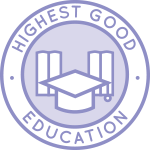 One Community is facilitating global regeneration through Highest Good education that is for all ages, applicable in any environment, adaptable to individual needs, far exceeds traditional education standards, and more fun for both the teachers and the students. This component of One Community is about 95% complete with only the Open Source School Licensing and Ultimate Classroom construction and assembly details remaining to be finished. With over 8 years of work invested in the process, the sections below are all complete until we move onto the property and continue the development and open sourcing process with teachers and students – a development process that is built directly into the structure of the education program and everything else we’re creating too:
One Community is facilitating global regeneration through Highest Good education that is for all ages, applicable in any environment, adaptable to individual needs, far exceeds traditional education standards, and more fun for both the teachers and the students. This component of One Community is about 95% complete with only the Open Source School Licensing and Ultimate Classroom construction and assembly details remaining to be finished. With over 8 years of work invested in the process, the sections below are all complete until we move onto the property and continue the development and open sourcing process with teachers and students – a development process that is built directly into the structure of the education program and everything else we’re creating too:
- Program Overview: Global Regeneration-Education Open Source Hub
- How the components work together: How to use the Education for Life Program
- Lesson Plans for Life – Lesson Plans How-to
- Foundations of Outstanding Leaders, Teachers, and Communicators
- Curriculum for Life
- Teaching Strategies for Life
- Learning Tools and Toys for Life
- Evaluation and Evolution
This week Dan Alleck (Designer and Illustrator) completed his 75th week helping with global regeneration and render additions and finishing work for the rooms in the Ultimate Classroom. This week he finished work on the yellow room by adding the final objects to the shelving. This room is represents the subject of Math and various empowering character traits and the final render can now be found on the website. The One Community model of combining forward-thinking education with sustainably built classrooms like this is an excellent example of global regeneration. See pictures below.
Zebao Chen (Structural Designer) also completed her 2nd week working on global regeneration and the Ultimate Classroom structural engineering details. This week Zebao checked the critical state building code, 2019 California Building Code for minimum plumbing number and occupancy load. Based on the new requirement and function, she updated the floor plan. The new floor plan kept the furniture layout, maintained adequate storage spaces, utilized natural roof ventilation, skylights, and built operable partitions between classrooms. Interior corners in the classrooms were updated to perpendicular or larger than 90 degrees, which allows for a more flexible furniture layout for different owners. It is also optional to adjust the outline of the floor plan closer to a circular shape.
For the use of community recreation or other events, a potential kitchen was also designed for consideration as part of the floor plan. Zebao additionally analyzed the heating and cooling ventilation in terms of global regeneration within the building on building sections. According to the products research, the operable partitions can use tracks in the ceiling, avoiding tracks on the floor, which would be easier for maintenance.
To operate the roof skylight, the product with solar power and remote control is also built with the rain sensor to close automatically in bad weather. She also updated the structure form to match the new building form. The One Community model of combining forward-thinking education with sustainably built classrooms like this is an excellent example of the highest good eco-community solutions. You can see some of this work below and we’d say this brings the engineering of this building to 3% complete.
HIGHEST GOOD SOCIETY PROGRESS
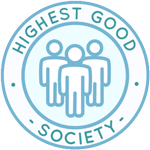 One Community is facilitating global regeneration through a Highest Good society approach to living that is founded on fulfilled living, the study of meeting human needs, Community, and making a difference in the world:
One Community is facilitating global regeneration through a Highest Good society approach to living that is founded on fulfilled living, the study of meeting human needs, Community, and making a difference in the world:
- Read the Highest Good society overview: Global Regeneration-Highest Good Society
- Learn about the model for fulfilled living and sharing: A Day in the Life
- Learn about the 4 economic models: RBE | For-profit | Non-profit | Entrepreneurship
- Learn about our open source community collaboration and management software: The Highest Good Network
This week Ross Edwards (Chief Imagination Officer, G3) completed his 2nd week helping promote our project and the One Community helping page to educators, engineering schools, and possible funders. Ross is someone who found our project, loved what we are doing and global regeneration, and just offered to help contact people he (and we) thought might be interested in it. This work helps One Community’s mission of global regeneration. You can see this last week’s list of who he contacted below.
Henry Nguyen (React Developer) completed his 14th week with the team and working on the Highest Good Network software. This week Henry focused on how to reorder tasks. He changed the move up and down function for reordering the tasks to much more user friendly drag and drop option. This work helps One Community’s mission of global regeneration. You can see some of this work below.
Wen Zhang (Software Engineer) completed her 7th week as a volunteer working on the Highest Good Network software. This week Wen designed and improved the Dashboard layout. For the backend, two more fields were added to the badge collection and a boolean type for “featured” was used to avoid duplicate data. For the frontend, time was mostly spent on the Reactstrap library (Card, Layout, etc) and CSS work, plus some component restructuring and reassigning. This work helps One Community’s mission of global regeneration. Some screenshots of Wen’s global regeneration work-in-progress are below.
AND WE PRODUCED THIS WEEKLY UPDATES BLOG – CLICK HERE TO SUBSCRIBE
FOLLOW ONE COMMUNITY’S PROGRESS (click icons for our pages)
INVESTOR PAGES
GET INVOLVED
DONATE | WAYS ANYONE CAN HELP | MEMBERSHIP
CLICK HERE FOR ALL PAST UPDATES
WHAT ONE COMMUNITY IS CREATING
One Community is creating a place to grow together and change the world together. We are creating a space that helps each other live in integrity with each other and the planet as we strive to be the greatest versions of ourselves. We do this by harmoniously respecting each other, nature, and the rest of our one shared planet.
Our goal is to demonstrate what we feel is the most sustainable, healthy, and fun environment we can create. A place based on compassion, kindness, and collaboration. This replicable community will serve as an example for what is possible.
Throughout our design process we are open sourcing and free-sharing everything needed for construction and replication. This includes what we call “Highest Good” approaches to food, energy, housing, education, for-profit and non-profit economics design, social architecture, fulfilled living, stewardship practices and more. We are creating these resources for implementation as individual components or complete developments called teacher/demonstration hubs. These hubs will help launch additional hubs as awareness and knowledge grow.
WHY ONE COMMUNITY IS CREATING THIS
The One Community self-replicating model is capable of creating a sustainable planet within 30 years. We will achieve this by establishing successful teacher/demonstration hubs on every continent. Villages include designs appropriate for each of the five main types of climates. They also include options for even the most challenged economies. These hubs will collaborate with one another, share ideas, resources, and work together as a network to heal the planet. They will also transform the global lifestyle to a more enjoyable, fulfilling, healthy, and sustainable one.
The specifics of how One Community is accomplishing this can be found on the One Community Solution Model to Create Solution-creating Models Page. Research supporting and showing the benefits of a model like this can be found on our Research and Resources Articles Archive.
 One Community
One Community